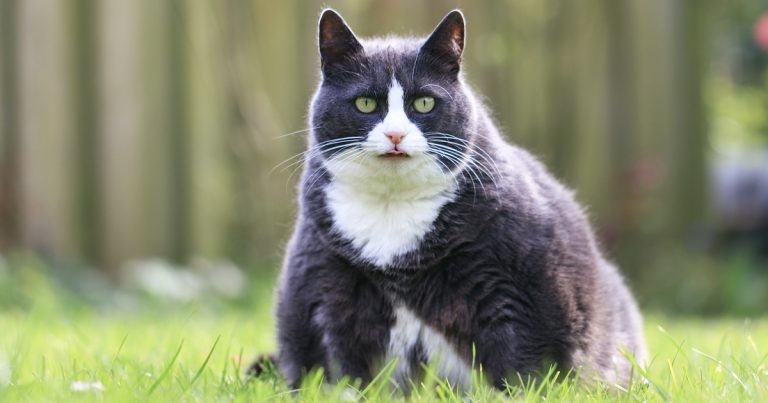14 Jan 2020
Collaboration between veterinary bodies results in action plan offering guidance to veterinary professionals for tackling the pet obesity problem.

Image © dennisvdwater / Adobe Stock
Some of the UK’s biggest veterinary associations have teamed up to produce an action plan on tackling obesity in companion animals.
National Obesity Awareness Week runs from 14 to 20 January, and a collaboration between the BVA, BVNA, British Veterinary Zoological Society and BEVA has resulted in 30 recommendations on how vets and practices can address obesity in dogs, cats, horses, donkeys and rabbits.
The position advocates the use of body condition scoring as a key tool for identifying, preventing and managing weight gain, and the development of obesity in animals.
Veterinary professionals are advised to monitor the body condition score and weight of a cat, dog or rabbit during its growth phase, and continue to check these measurements at least once a year.
The organisations also recommend that staff should be well-trained in using body scoring scales consistently for the species they treat, and practices should have policies in place that support vets and VNs to speak to clients about weight management.
Drawing on the BVA’s recent advertising guidelines, the position also calls on practices to avoid using overweight or obese animals in their marketing, and make sure that if animals are shown eating in any images, the food should be proportionate to their size, dietary needs and lifestage.
The BVA’s Spring 2017 Voice of the Veterinary Profession Survey found 67% of companion animal vets responding said obesity and overfeeding of pets was among their three most pressing animal welfare concerns.
Many expressed concerns that owners of dogs, cats and rabbits were not aware their pet was overweight or obese, pets were being fed inappropriate portion sizes, or too many treats or human food were being added to their base diet.
BVA president Daniella Dos Santos said: “As veterinary professionals, we have a huge part to play in managing and preventing obesity in companion animals.
“This is a serious and growing issue that can cause or exacerbate a wide range of health and welfare problems, so it’s incumbent on us to give clients clear and consistent advice and support to help their animal maintain a healthy weight.”